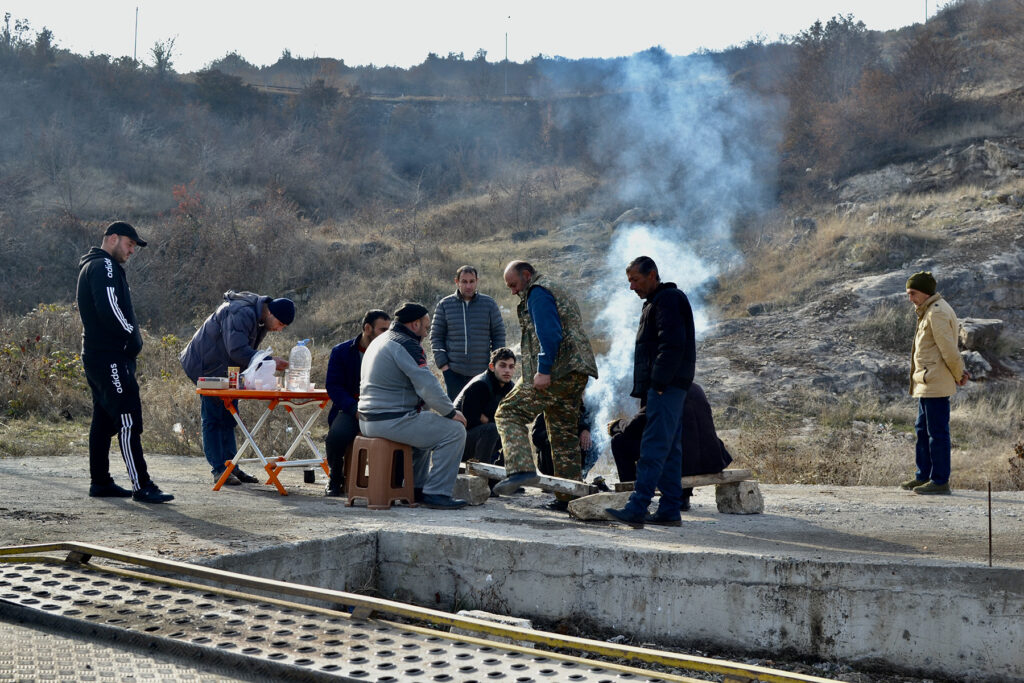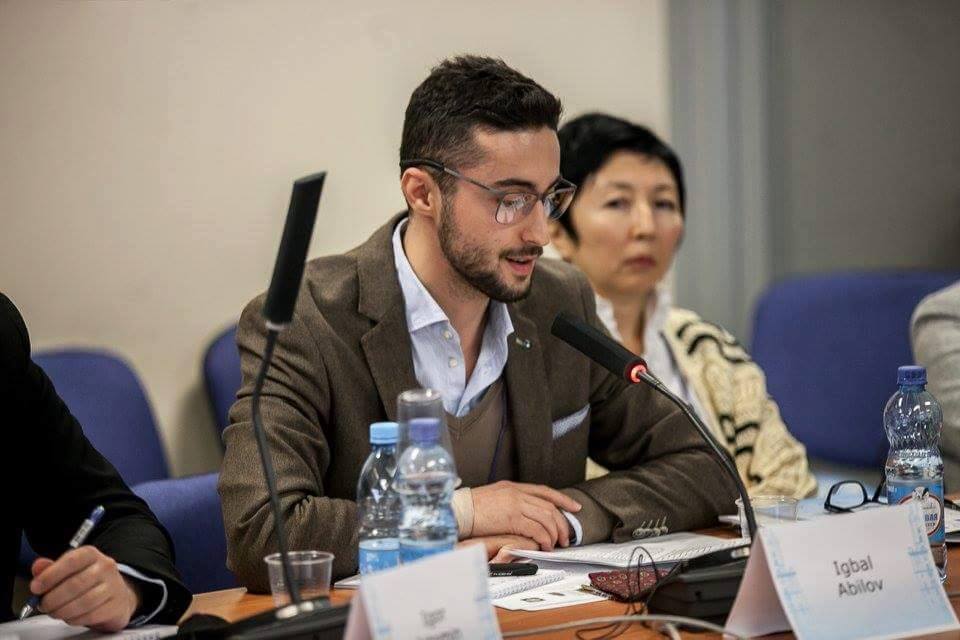Reports of food and energy shortages are continuing to grow in Nagorno-Karabakh, as the region enters its third month under blockade.
The blockade started in December when a group of Azerbaijanis claiming to be eco-activists blocked the Lachin Corridor purportedly to protest illegal mining in Nagorno-Karabakh. The corridor is the only passage in and out of Nagorno-Karabakh for its 120,000 inhabitants.
In the second month of the blockade, lorries from the Red Cross and the Russian peacekeeping mission in Nagorno-Karabakh began transporting humanitarian aid to the region. However, local authorities in Stepanakert claim that the aid they have been receiving is insufficient as the region battles with shortages of basic foodstuffs, medicine, and other goods.
In January, Nagorno-Karabakh introduced rationing of buckwheat, rice, sugar, and cooking oil. The list expanded to cover eggs, fruits, and vegetables in February.
[Read more: Nagorno-Karabakh introduces rationing and blackouts as blockade continues]
Marut Vanyan, a Stepanakert-based journalist, told OC Media that the region was struggling with the food rationing system, with queues for food and not enough supplies for everyone.
Vanyan said the lack of fuel was also worsening food shortages, as people from rural areas could not travel to Stepanakert to sell produce and meat.
‘The city looks like a village’
Since the blockade started, Nagorno-Karabakh’s gas supply from Armenia has been cut off seven times. Both Yerevan and Stepanakert have accused Azerbaijan of cutting the region off, as all gas pipes pass through Azerbaijan-controlled territories.
‘There is almost no traffic in the city. The city looks like a village: silence and smoke from stoves,’ Marut Vanyan told OC Media. ‘In the evenings, the city is shrouded in complete darkness’.
Vanyan said people had ‘involuntarily’ adapted to the new reality by relying on wood stoves for heating.
‘Stepanakert is completely covered in smoke; they are cutting wood with chainsaws in the courtyards of buildings, burning wood for heating and cooking. It is also expensive for ordinary people, but there is no alternative.’
Due to energy shortages, educational institutions have partly closed, while some have adjusted to use woodstoves for heating.
The region has also been forced to introduce rolling blackouts; with hour-long power cuts six times a day. The authorities have said this is due to damage to electricity cables in territories controlled by Azerbaijan.
On Monday, Nagorno-Karabakh’s local power distribution firm, Artsakhenergo, reported supply chain breakdowns in several parts of Stepanakert as a result of overloads in the system. Residents of the city were instructed to save electricity to avoid further damage.
Hospitals in the region have also reported shortages of medical supplies and equipment, putting a hold on around 600 non-essential surgeries in favour of admitting more urgent cases into operating rooms.
The Red Cross has also transferred several patients requiring urgent medical assistance to hospitals in Armenia.
The protestors blocking the Lachin Corridor initially demanded access to the region’s mines, before later calling for the Azerbaijani authorities to be able to inspect all vehicles entering and leaving Nagorno-Karabakh.
Azerbaijani authorities have officially denied being behind the protests, despite Armenia and several Western countries stating otherwise. Despite reports early in the blockade of talks between Stepanakert, Baku, and the Russian peacekeepers to resolve the situation, no agreements were reached. No further reports about the negotiations have been made public.
For ease of reading, we choose not to use qualifiers such as ‘de facto’, ‘unrecognised’, or ‘partially recognised’ when discussing institutions or political positions within Abkhazia, Nagorno-Karabakh, and South Ossetia. This does not imply a position on their status.




 13 February 2023
13 February 2023



